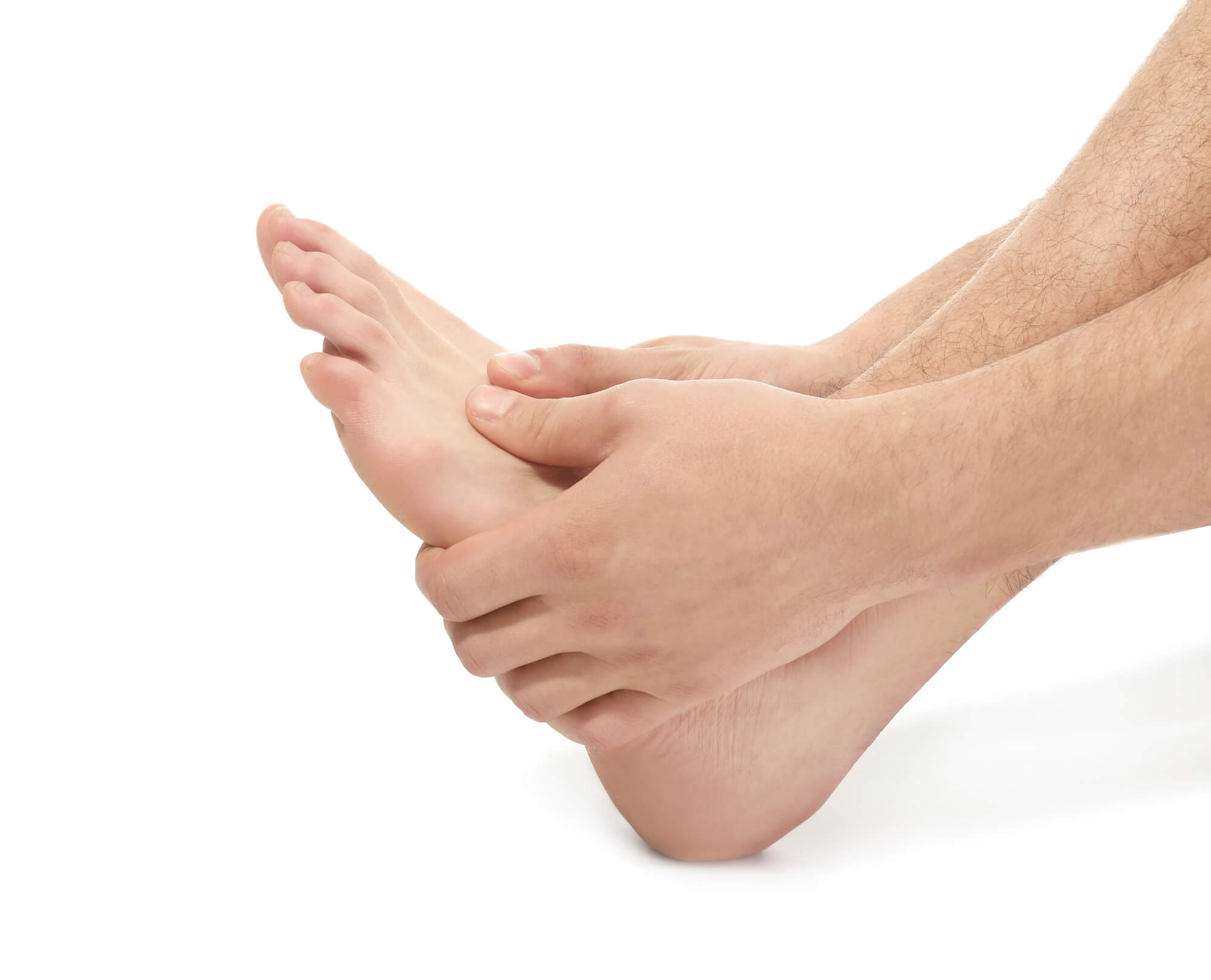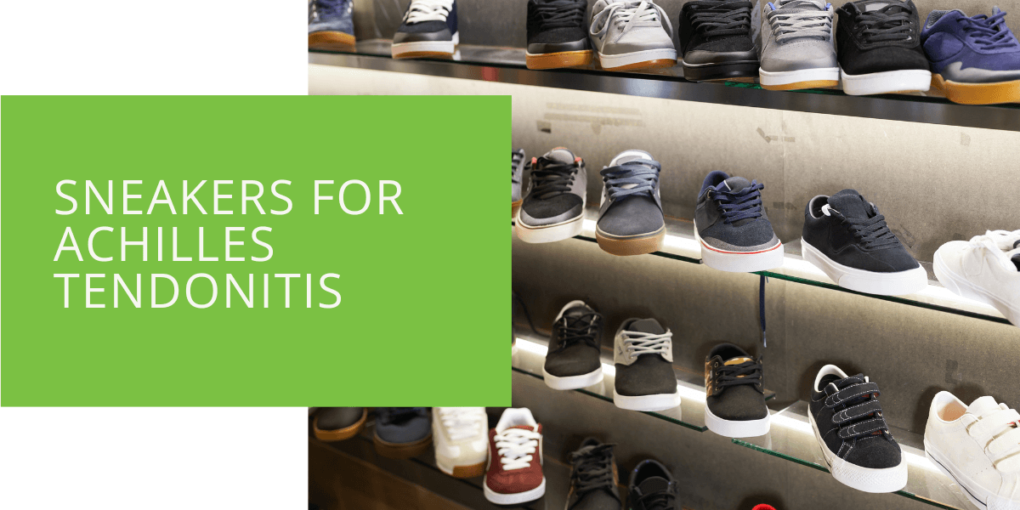Sneakers for Achilles Tendonitis: Alleviate Pain with Proper Footwear
Achilles tendonitis, a common condition characterized by inflammation of the Achilles tendon, can cause significant discomfort and limit mobility. While various factors contribute to its development, including overuse, improper footwear exacerbates symptoms. In this comprehensive guide, we'll delve into the importance of selecting the right sneakers to alleviate Achilles tendonitis pain effectively.
Key Takeaways
- Proper footwear is crucial for alleviating Achilles tendonitis pain, with features like supportive heel design, cushioning, and stability playing key roles.
- Insoles can provide additional support and cushioning to address specific foot issues associated with Achilles tendonitis, offering personalized relief.
- Choosing lightweight, durable sneakers with ample cushioning and a roomy toe box can help reduce stress on the Achilles tendon and promote comfort during physical activity.
Understanding Achilles Tendonitis
The Achilles tendon, the largest tendon in the body, connects the calf muscles to the heel bone. When subjected to repetitive stress, such as intense physical activity or inadequate support from footwear, the tendon may become inflamed, resulting in Achilles tendonitis. This condition manifests as pain and stiffness along the back of the heel, particularly during movement.
Choosing the Right Sneakers for Achilles Tendonitis
Supportive Heel Design
Sneakers with a supportive heel design are essential for individuals with Achilles tendonitis. A raised heel can help reduce stress on the Achilles tendon by minimizing the angle between the heel and the calf muscles. Look for shoes with a cushioned heel cup that provides stability and prevents excessive pronation, which can further strain the tendon.
Cushioning and Shock Absorption
Cushioning is paramount in reducing the impact of each step and alleviating pressure on the Achilles tendon. Opt for shoes with ample cushioning in the heel and midsole to absorb shock and distribute force evenly throughout the foot. This feature helps minimize stress on the tendon, promoting comfort and preventing injury.
Stability and Motion Control
Stability and motion control are crucial considerations for individuals with Achilles tendonitis, as excessive foot motion can exacerbate symptoms. Choose sneakers with a supportive arch and a firm midsole to help stabilize the foot and control overpronation. This enhances overall foot alignment and reduces strain on the Achilles tendon during movement.
Flexibility and Range of Motion
While stability is essential, sneakers should offer sufficient flexibility to accommodate natural foot movement. Look for shoes with a flexible forefoot and adequate toe box room for smooth heel-to-toe transitions. Flexibility enhances comfort and reduces the risk of aggravating Achilles tendonitis by minimizing friction and pressure on the tendon.
Features to Look for in Running Shoes for Achilles Tendonitis
Heel Drop
A shoe's heel-to-toe drop, or offset, can influence the amount of stress placed on the Achilles tendon. A higher heel drop shifts more weight onto the forefoot, potentially increasing strain on the tendon. For individuals with Achilles tendonitis, shoes with a lower heel-to-toe drop may be preferable as they promote a more neutral foot position and reduce tension on the tendon.
Arch Support
Proper arch support is essential for maintaining optimal foot alignment and reducing stress on the Achilles tendon. Look for sneakers with built-in arch support, or consider using orthotic inserts to provide additional support and cushioning. Custom orthotics can help address individual biomechanical issues and alleviate symptoms associated with Achilles tendonitis.
Breathability and Moisture Management
Breathable footwear is essential for preventing excess moisture accumulation, which can lead to friction and irritation of the Achilles tendon. Choose shoes made from breathable materials like mesh or perforated synthetic fabrics to promote airflow and keep your feet dry and comfortable. Moisture-wicking socks can also help manage sweat and reduce the risk of blisters and chafing.
Durability and Quality Materials
When selecting sneakers for Achilles tendonitis, prioritize durability and quality construction to ensure long-lasting support and protection. Look for shoes made from durable materials that can withstand the rigors of regular wear and provide consistent cushioning and stability over time. Investing in high-quality footwear can help prevent premature wear and minimize the risk of injury associated with worn-out shoes.

How Insoles Can Help Alleviate Achilles Tendonitis Pain
Benefits of Orthotic Insoles
Orthotic insoles are designed to provide customized support and cushioning to address specific foot issues, including Achilles tendonitis. These inserts can help redistribute pressure away from the Achilles tendon, reduce excessive pronation, and improve overall foot alignment. By offering targeted support, orthotic insoles help alleviate pain and discomfort associated with Achilles tendonitis, allowing for improved mobility and function.
Types of Insoles for Achilles Tendonitis
Various insoles are available to accommodate different foot shapes and support needs. Semi-rigid or rigid orthotic insoles offer maximum support and stability for individuals with severe overpronation or flat feet. Soft or cushioned insoles provide additional padding and shock absorption, ideal for individuals with sensitive or high-arched feet. Custom orthotics can be tailored to fit your unique foot anatomy and address specific biomechanical issues contributing to Achilles tendonitis.
Custom vs. Off-the-Shelf Insoles
While off-the-shelf insoles may offer temporary relief for mild cases of Achilles tendonitis, custom orthotics provide superior support and long-term benefits. A podiatrist or orthopedic specialist can assess your foot structure and gait mechanics to create custom insoles that address your needs. Investing in custom orthotics can effectively manage Achilles tendonitis and prevent recurrence by addressing underlying biomechanical issues contributing to the condition.
The Impact of Shoe Design on Achilles Tendonitis Pain
Low vs. High Heel Counters
The heel counter, or the rigid structure surrounding the heel's back, plays a crucial role in supporting the Achilles tendon. Sneakers with a low heel counter may not provide adequate support, leading to increased strain on the tendon during physical activity. In contrast, shoes with a higher heel counter offer better stability and protection for individuals with Achilles tendonitis, reducing the risk of injury and discomfort.
Impact of Shoe Width and Toe Box
The shoe's width and the toe box size can also influence Achilles tendonitis pain. Narrow shoes can compress the foot and increase pressure on the Achilles tendon, exacerbating symptoms. Opt for sneakers with a roomy toe box that allows for natural toe splay and minimizes constriction. Choosing the appropriate shoe width ensures optimal comfort and reduces stress on the Achilles tendon during movement.
Weight and Structural Integrity
The weight and structural integrity of the shoe can impact its ability to support and protect the Achilles tendon. Lightweight sneakers are preferred for individuals with Achilles tendonitis, as they reduce the overall workload on the foot and lower leg muscles. Additionally, choose shoes with durable construction and ample cushioning to maintain stability and shock absorption, minimizing the risk of tendon injury or rupture.
Conclusion: Expert Tips for Choosing Sneakers to Alleviate Achilles Tendonitis Pain
Selecting the right sneakers is crucial for managing Achilles tendonitis and preventing further discomfort and injury. By prioritizing features such as supportive heel design, cushioning, and insole support, you can effectively reduce stress on the Achilles tendon and alleviate pain associated with the condition. At ePodiatrists, we specialize in foot care and offer personalized recommendations to help you find the best shoes for Achilles tendonitis. Schedule an appointment with our experienced podiatrists today to start your journey towards improved foot health and pain-free living.

